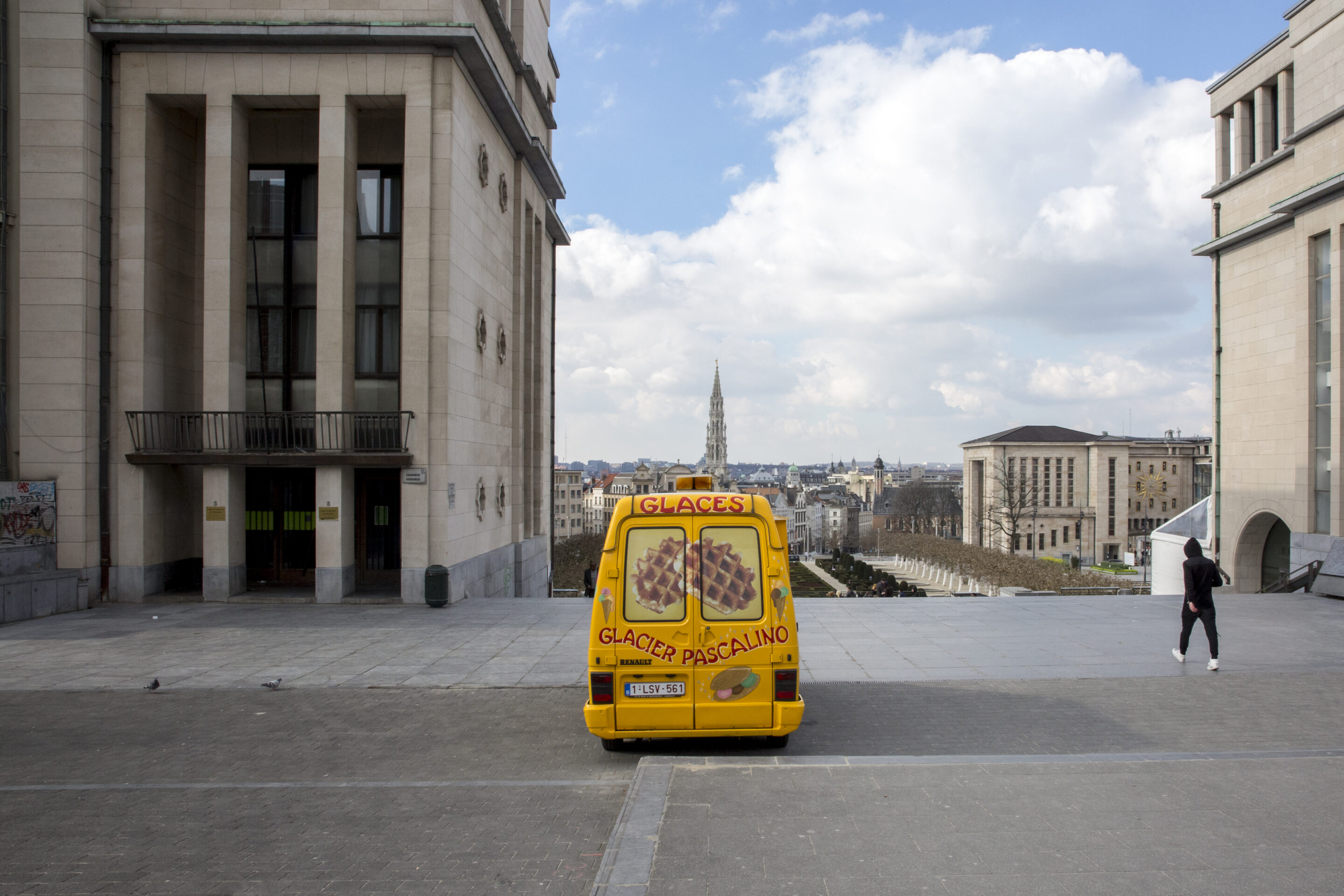EU, French-speaking, Moroccan, Flemish or Congolese, Brussels is a city of many different bubbles. For the founder of Restless Brussels, the only real problem with this is when people are not curious about other bubbles – and this is why he wants expats to get involved.
This month, Restless Brussels is celebrating its one-year anniversary as a local activist group rallying international Brussels residents to get involved with the political and cultural machinations of the Belgian capital.
After 10 years working in the European Commission, its Irish creator Tom Moylan found himself at a fork in the road after laying down roots in the city and having a child: he wanted to be more involved in the civic life in Brussels.
"I put down roots here, but there was also just a whole bunch of discussions and debates going on which I knew I had opinions about, but I didn't necessarily understand the context," Moylan tells The Brussels Times.
After joining a couple of civil society groups in Brussels, Moylan "finally" met people who understood Brussels on a deeper level and to whom he people he "could ask [his] stupid questions to," as they were knowledgeable about the contexts that his fellow expatriates may be unaware of. Buoyed by the experience, Moylan sought to replicate these networks for the international community.
"I found people I could learn from and check in with on WhatsApp and be like: Wait, wait, wait. What's going on here? Why are you annoyed about this, or why has the local government responded in this way?”
He was not sure about how much interest there would be, but after 70 people first showed up to the first meeting on mobility in Brussels (a topic Moylan himself is interested in), he thought to himself: "I’m onto something here."
He gradually assembled a team of board members, volunteers and supporters to help run regular events and discussions on issues close to the international community.
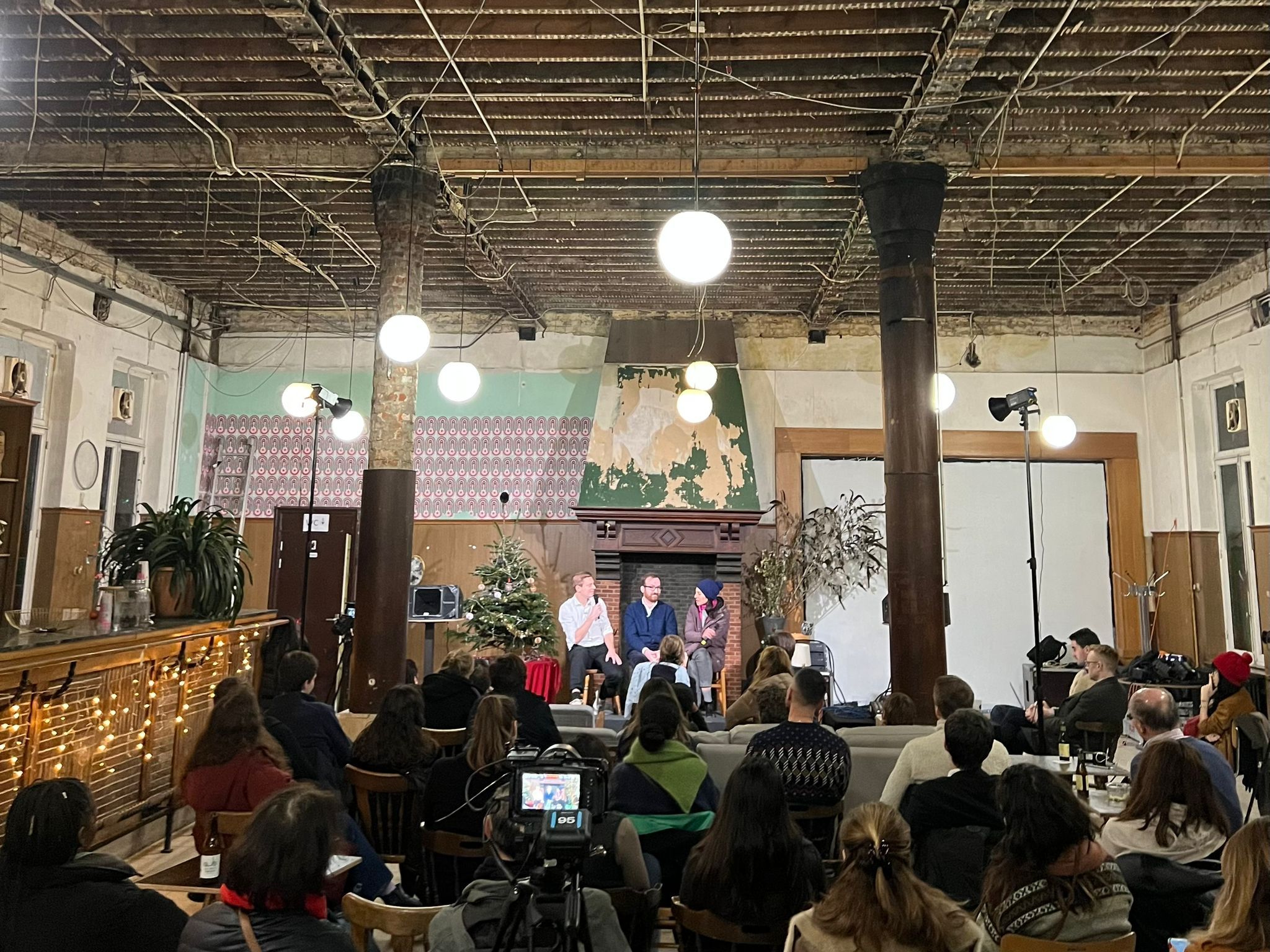
Event on 6 December 2023 'How to feel like a Brusseleir without being from Brussels (Etterbeek 1040)'. Credit: Restless Brussels
"I have a board of six other people who work on this with me - as well as a further dozen or so volunteers," Moylan says. "They're incredibly dedicated people who are literally working on this weekly, if not daily, putting in loads of effort on everything from running our social media to setting up and running events."
'Jumping on something when it's hot'
So who decides on which topics are debated at Restless Brussels? Moylan says it comes down to three things: community discussions, opportunism and individual interests. The community itself can propose topics, but there are no set guidelines, it is a dynamic and developing conversation.
"We try not to be over-bureaucratic or institutional about these things. We all come from those environments. We work in those environments. We don't need more of it. We want to be more flexible."
There is also "opportunism, and jumping on something when it’s hot." For example, Restless Brussels has been running events with Belgian and Brussels politicians in the run-up to the 2024 elections, joined by the likes of Brussels Mobility Minister Elke Van den Brandt (Groen), Secretary of State for Urbanism and Heritage Ans Persoons (Vooruit), and David Leisterh (leader of MR Brussels).
But it's not just politics – many of these meetings are practical workshops, debates and smaller meetings (including in people's living room and gardens) – and they are leaving the door open to run more cultural and experimental events in the future.
"We have a really nice balance. Of the two coming up later this month, one is a community meeting to hear from passionate members of Restless Brussels and the other is a session with Pool is Cool, who have campaigned for outdoor swimming in Brussels - which is also a chance to have a swim."
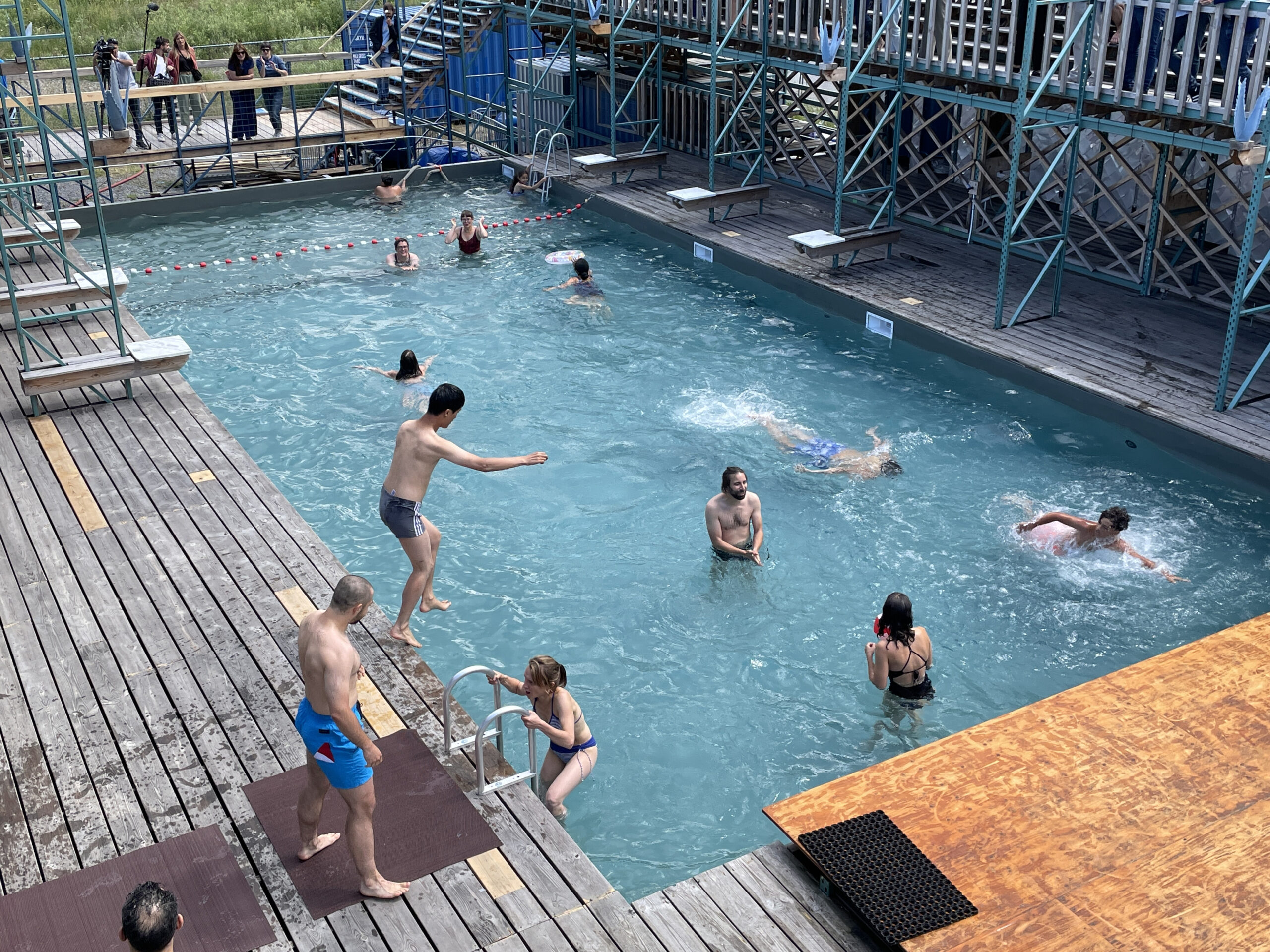
Flow outdoor swimming pool 'Pool is Cool' is the only (temporary) open-air swimming pool in Brussels. Credit: Belga / Nils Quintelier
While Restless Brussels is run by its international volunteers, there is also a healthy Belgian contingent who regularly attends events and makes up between 5 and 10% of attendees. "Some of them come to be supportive because they like the idea of international residents engaging with the city, but others come just because they're interested to see the interaction between our community and their home."
Moylan maintains that Restless Brussels "needs" Belgians at its events, as it can help international residents better understand contexts around and potential solutions to long standing issues like air quality, mobility or cleanliness. Belgians, too, appreciate the non-party affiliated discussions about current affairs and local issues.
What topics do international residents care about?
After over 30 events, the growing Restless Brussels community has a good grasp on some of the issues that are worrying the international community of Brussels – something which has not been missed by Belgian guests at Restless Brussels events. "One of the things that I have heard back from the politicians is that they're always pleasantly surprised at how well-informed we are, which is nice," Moylan says.
Mobility, security, cleanliness and institutional complexity are all concerns that have repeatedly come up in community discussions, and are important topics in the community, Moylan says. Meetings and events act as a starting point, then people go off to read the news and engage with these topics from a new perspective, often informed beyond what is found on social media.
Do people who hate the city ever attend? Not really, says Moylan, the vast majority of people are engaging with Brussels in good faith, and come from a position of loving their new home town and wanting to contribute.
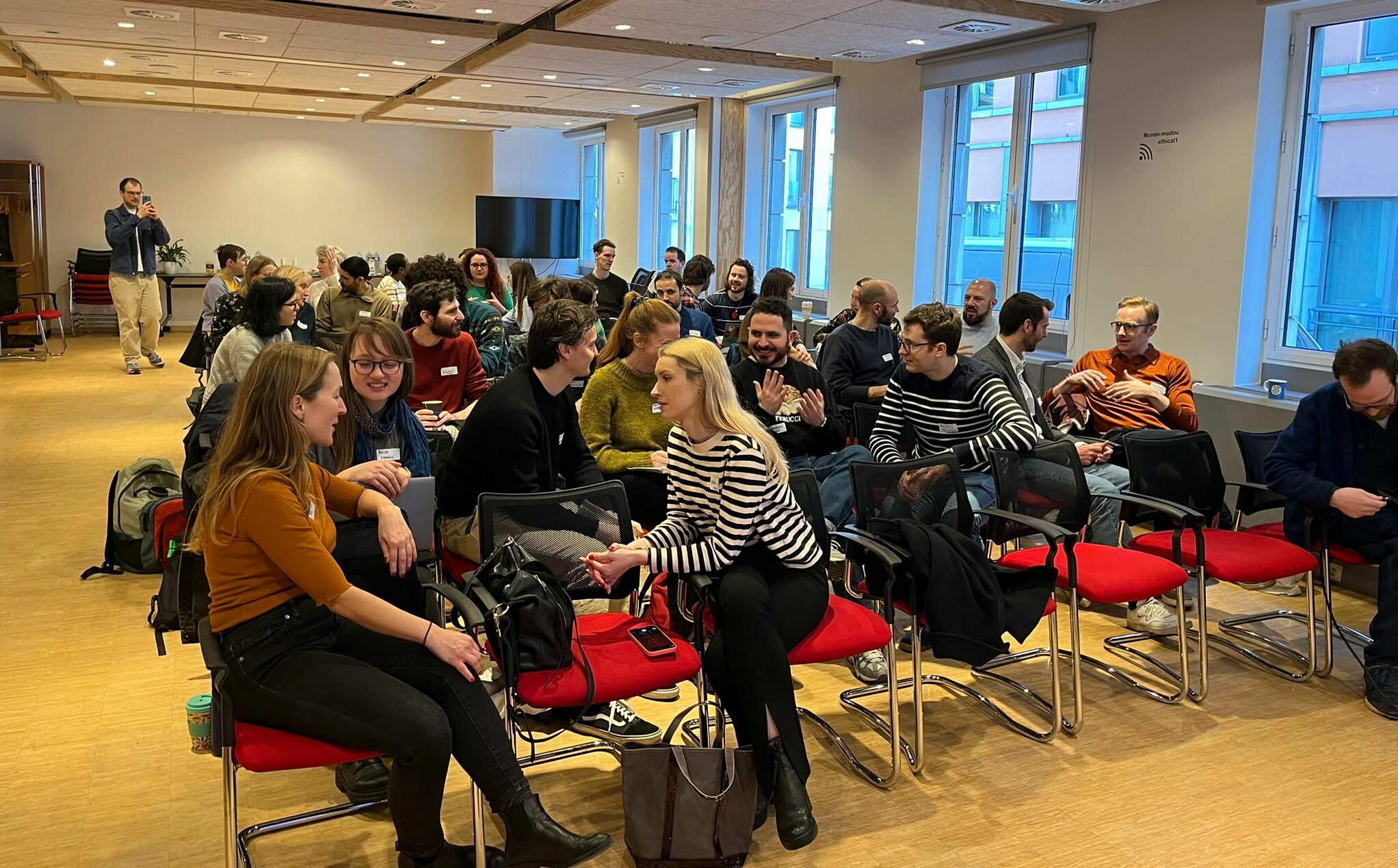
A Restless Brussels event entitled 'Local Activism Bootcamp' in Saint-Josse. Credit: Restless Brussels
Moylan says he has been surprised that from the beginning, it has been incredibly rare that somebody comes to an event and is exclusively negative about Brussels. He understands if somebody wants to come and vent their frustrations, but it's not really the vibe that they are going for. Yet, there are different types of naysayers.
"The thing I find frustrating, to be honest, is when we're trying to have a conversation about how we want the city to look like. And then somebody comes in and says, Well, look at all of this institutional complexity, which means it's impossible. And then I'm kind of like, OK, cool. So just what you're saying is there's no way out? I simply can't believe that."
Herein lies the core mission of Restless Brussels, enacted with the curiosity to try and understand something new, but also the humility to say that "we don't have answers because we don't understand the whole picture."
Bubbles, communities and class
"I mean, let's face it. Brussels is chaotic. Brussels is messy, and that can be both something that is part of its charm, and something that we really do not want to accept, either," Moylan says. "Especially when that chaos and messiness has a negative impact on people's lives, and not just ours."
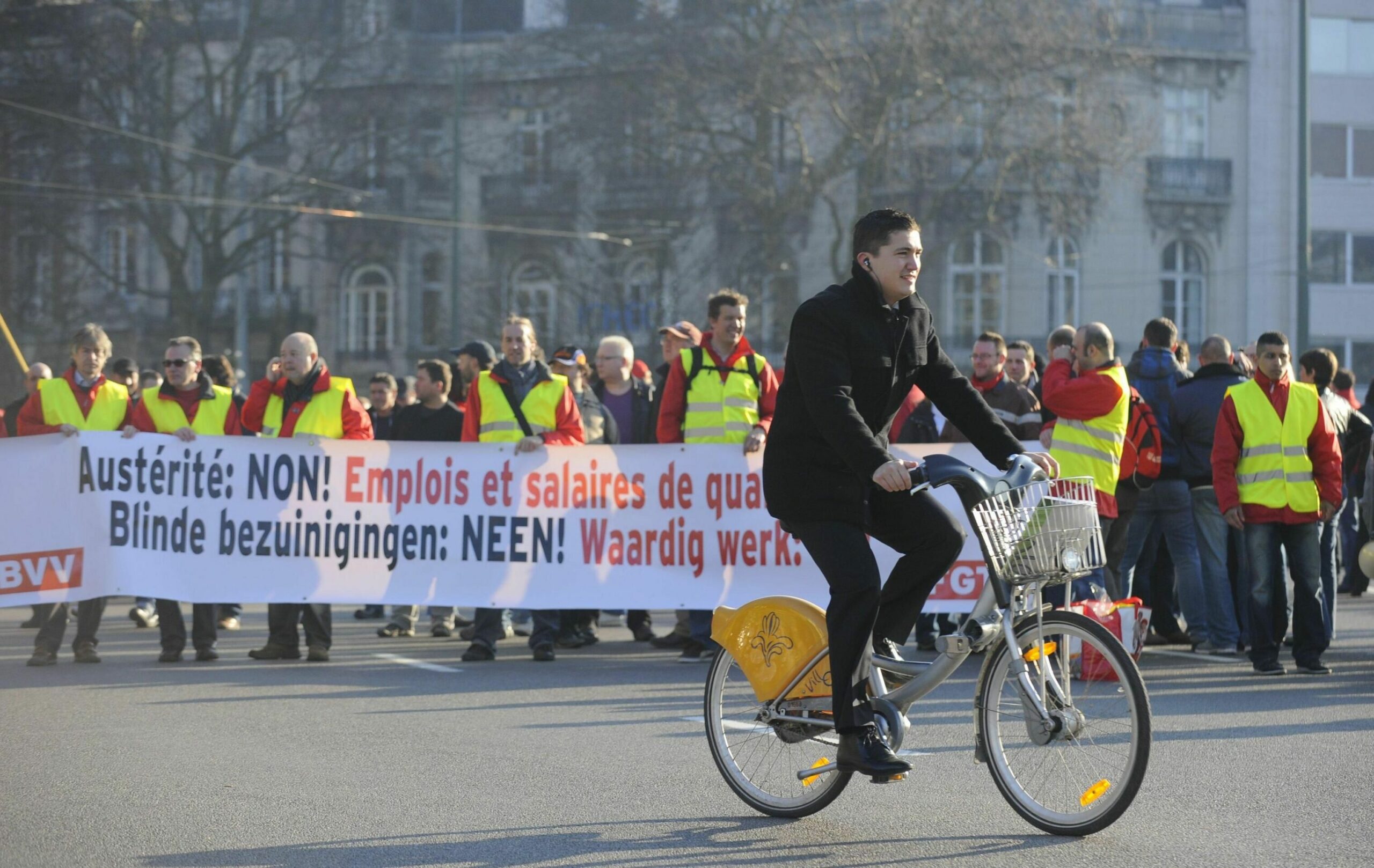
A cyclist passes a Belgian trade union protest against austerity in 2011. Credit: Belga / Eric Lalmand
When participating in conversations about local issues, Restless Brussels acknowledges its community's privileged socio-economic position, with the majority of its members being a highly educated group. Moylan says it is important for those within the "EU bubble" to connect with the realities of people from other backgrounds and life experiences. This also makes it important to be understanding when conversing and connecting with other communities in the city.
Brussels is home to 184 nationalities and almost 40% of its residents are foreign nationals, making it the most cosmopolitan city in Europe, and second in the world after Dubai.
"What we're talking about is an incredibly diverse city, and we come from one bubble within a city of bubbles, right?" Moylan says. "It's a city of lots of parallel communities and groups, you have Moroccan bubbles, Congolese bubbles and Turkish bubbles, but also your Flemish bubbles and Francophone bubbles."
Restless Brussels holds its meetings mostly in English - though it has run sessions in French and Spanish. This junction of community and class goes to the heart of what the use of the English language at the administrative level actually means to many.
One heated (but respectful) event on Brussels and the English Language saw the participation of pro-English advocates: the Brussels-Capital Region Minister for Multilingualism Sven Gatz, and Schaerbeek Councillor for Population Quentin van den Hove.
During the event, it quickly became clear that language use in Brussels remains a sensitive topic for historical reasons. Brussels was once a Dutch-speaking city until it was francisised. Today, calls for the use of English as Brussels' fourth official language (for administrative purposes) are growing.
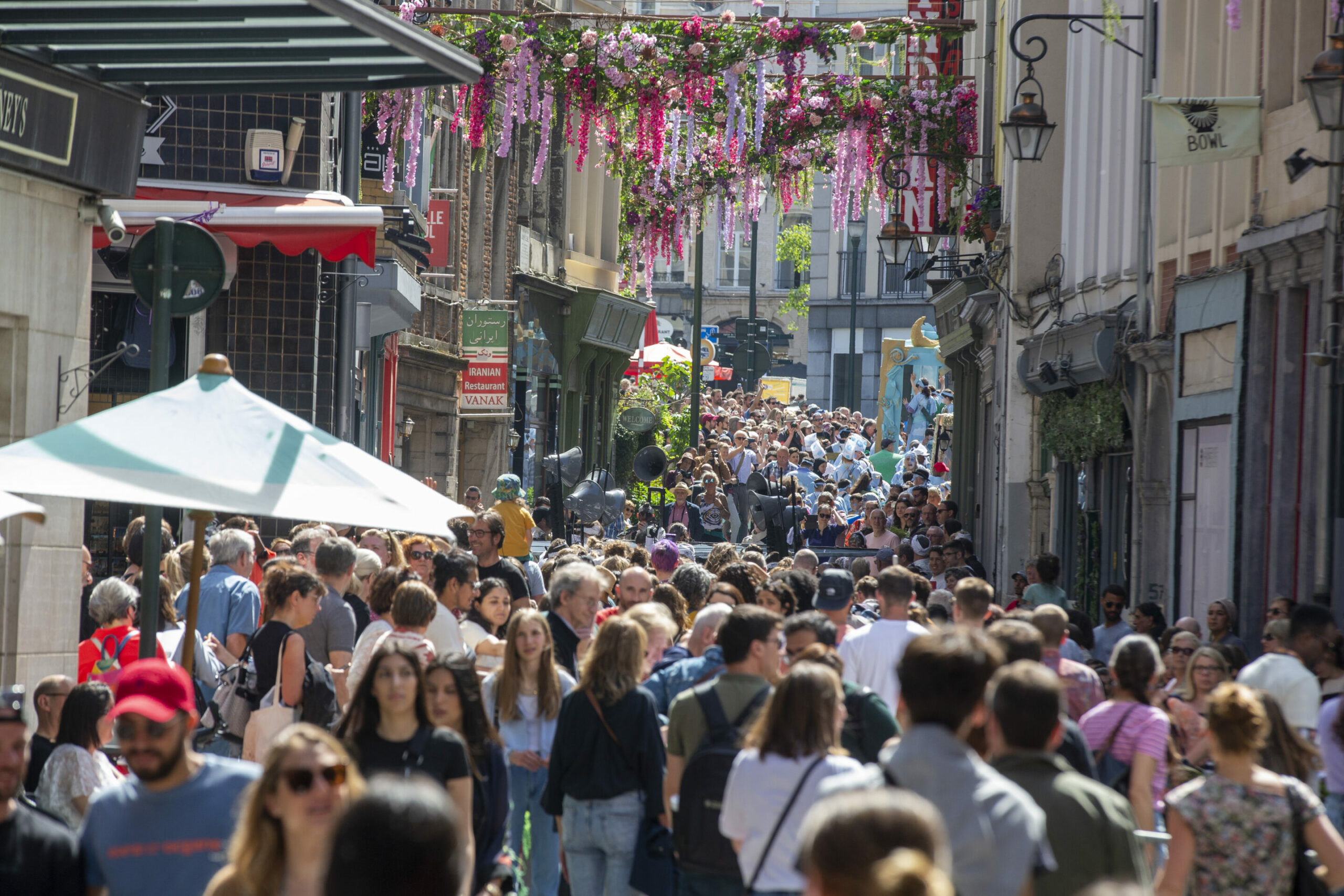
Brussels during the Zinneke Parade in 2022, a multicultural carnival to connect the many different cultures, communities and districts within Brussels. Credit: Belga / Nicolas Maeterlinck
At the event, there was a wide range of views and languages spoken – from English to French, Dutch and even Irish. There were calls for Arabic as a Brussels working language and warnings against "internationalisation". Some were defensive about protecting the French language, but within that viewpoint, there was a wider conversation about society, which can be a tricky path to navigate for newcomers.
"You're not just talking about language. You're talking about class. You're talking about access to services. You're talking about cultural history. You're talking about context, and we need to be really mindful of all of that," Moylan responds.
No matter what is discussed, none of these issues are separate from each other. "If you're talking about mobility, you're also talking about class,” Moylan continues. "When 50% of Brussels does not own a car, it's not the rich part of Brussels that doesn't own one. None of these issues are separate from each other."
Democracy campaigning
From housing to security, Moylan maitains that, ultimately, everyone wants a better city and shares the same concerns, they just come at it from a different angle.
For now, Restless Brussels is also working tirelessly to get people to register before the 31 July deadline for the municipal elections in October.
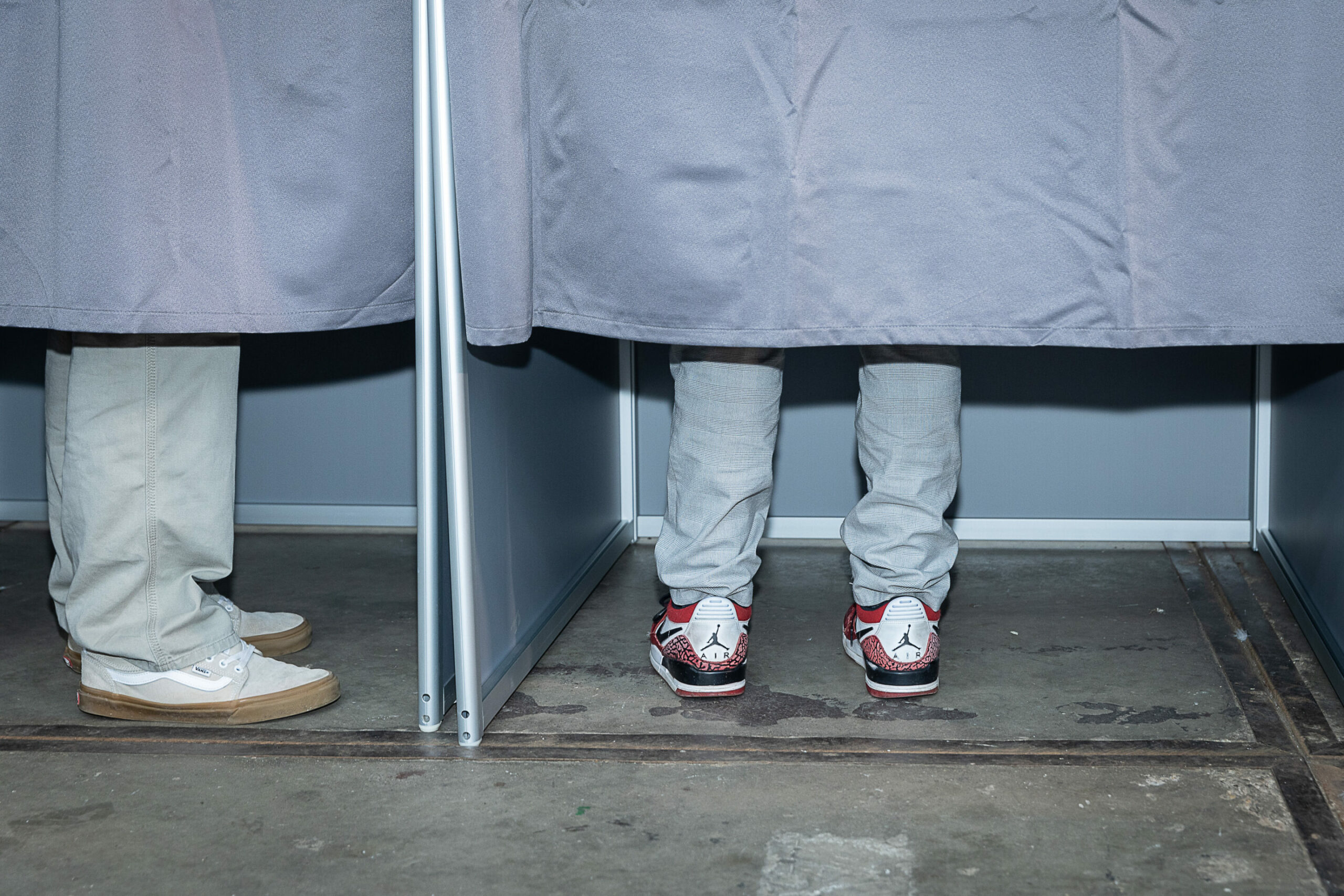
Credit: Belga / James Arthur Gekiere
After winning a grant from the Brussels authorities, they’ve been leafleting, attending major events like the 20 km marathon getting people to register for the October elections, while also running training sessions across the city, giving people the tools to understand how the city works and how they can interact with and lobby their local government.
Debating, campaigning, socialising and meeting new people – Restless Brussels wants to cover cultural aspects of life in the city, not just political ones and it is aimed at all zinnekes – a term from the old Brusselian dialect for a person living in Brussels who was not born there.
While Moylan says there is no plan to turn Restless Brussels into a political party, his words about Brussels being a collection of bubbles ring true - and that raises the question of who politically represents those in and around the "EU bubble".
For now what he wants is to build bridges between these bubbles, encouraging openness and more meaningful relationships between the community he comes from and others in the city. When we swap the word bubble for community, working towards something better seems more achievable.

